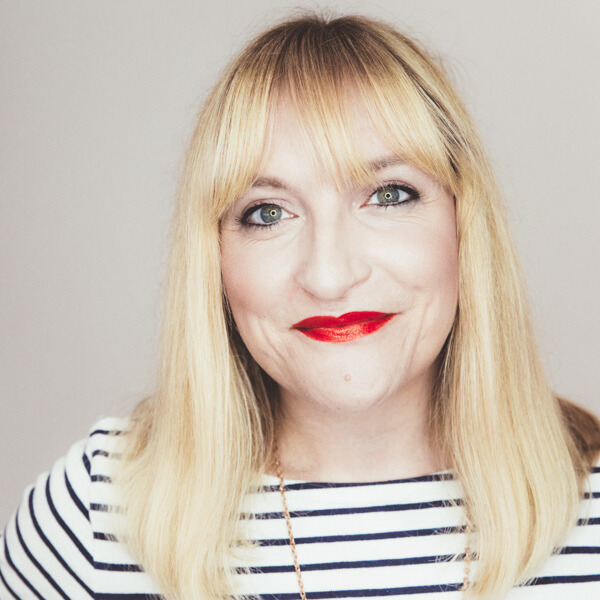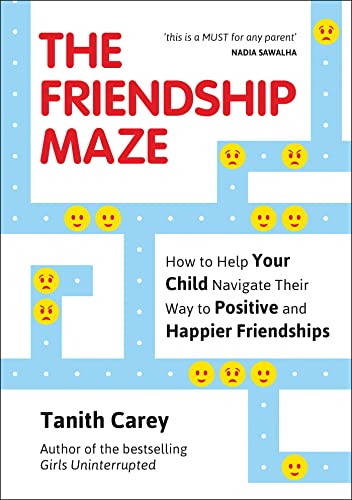"I feel helpless when my teen has friendship issues" - one mum shares best advice she ever got (and it worked)
Mum of three, Alison Perry, has hit a whole new mum era and it’s brought up some surprising challenges


Being a teenager is difficult, teens are renowned for being tricky with parents treading on eggshells while navigating emotions, hormones and the variety of outside influences - hello social media - throwing a few curve balls in there too.
Curve balls in parenting teens can look like wondering why your teen won't leave their room, or why your teen has stopped talking to you and many parents can feel lost with the teen slang used and this is all before setting foot in the complicated land of friendships. Here writer and mum-of-three, Alison Perry shares the best advice she was ever given when it came to helping support her teenage daughter and navigating friendships...
Friendships are hard, right? Being one, having one, sharing one. I've experienced my own friendship woes, more so in recent years. I've been ghosted by a good friend, lost hours worrying that joke I made on a WhatsApp group upset someone, and felt like it was always me making the effort with a friend… Thankfully, as a 45-year-old, who has been around the friendship block a few times, I’m pretty used to dealing with this stuff.
But something fairly new to me is helping my 13-year-old navigate her own friendship issues. It feels like a whole new era of parenting. Back when she was in primary school, things seemed easier. Sure, she fell out with friends and experienced the usual bumps in the road, but things could usually be resolved by me chatting to the other parent.
"Helping my 13-year-old navigate her own friendship issues. It feels like a whole new era of parenting."
Sometimes we’d get the kids together to talk through their problems, other times, if the other parent wasn’t as responsive, I’d just suggest she play with other friends. And because (by and large) younger children don’t overthink things, she usually did, and all was well.
But now she is a teenager, things are more complex. For a start, I don’t even know the parents of most her friends and anyway, according to experts, it’s important to let them sort out their friendship issues themselves.
Tanith Carey, author of The Friendship Maze: How to help your child navigate their way to positive happier friendships, and Gestalt psychotherapist in training, says that getting involved can often be a bad idea. “This is often what your tween or teen fears most – that you will rush in, talk to the other parents, embarrass them and make it all worse,” she says.
GoodtoKnow Newsletter
Parenting advice, hot topics, best buys and family finance tips delivered straight to your inbox.

This book will help parents with the increasingly complex social pressures changing the face of childhood, Tanith has drawn on extensive research on children's friendships, from toddlers to teens.
“Unless there’s a very clear imbalance of power between your child and their adversary – or your child is being ganged up on or deliberately bullied, give them the chance to resolve their own conflicts.”
And that’s hard! If my daughter is upset and talking me through the ins and outs of a fall-out, it awakens the Mumma Bear in me. I just want to protect her and take away the hurt. It’s not easy to feel helpless when your child is in pain. And it does feel as bad as real pain, according to science.
“Brain scans have shown that rejection at this age can cause emotional pain that’s as intense as physical pain,” says Tanith. Another aspect of helping my teen through friendship flare-ups is how it makes ME feel.
I’ve realised it triggers my own memories of teenage friendship dramas. That time when I was 13 and my “friends” ran off out the school dinner hall without me and hid, laughing, hoping I wouldn’t see them. That time when I was 14 and in an awkward friendship group of three and whatever we did, one of us would be left out.
Tanith says this is normal. “When we hear our child say another has been mean to them it may bring up our own biases and childhood experiences into the situation, in which we mainly remember our worst-ever hurts, not the minor skirmishes that we easily brushed off,” she says.
Of course, we know that friendship issues are just a regular part of life. But it’s a relief to discover that they’re also linked to brain development too, so pretty inevitable for most teenagers.
“Tweens and teens' brains are still a work in progress – so young people this age can be impulsive and fear rejection, which means they don’t always act in the kindest of ways,” explains Tanith. It’s this brain development which makes teens and social media a toxic mix, especially when looking at friendships.
“When children have issues, what they need most is an adult to listen to them, not a bouncer or lawyer.”
Tanith Carey
“The prefrontal cortex in the frontal lobe of their brains is critical in making decisions as well as understanding cause and effect, but it’s still a work in progress during adolescence,” says Tanith.
“Combine this with a young person’s freedom to say virtually whatever they like on social media, usually out of the view of adults, and it’s easy to see how conflicts escalate.”
My go-to tactic so far, with my teen, is to listen sympathetically when she is talking to me about friendships – and to always make time for her when she says she wants to chat.
Tanith says that keeping the lines of communication open is important. “Spend regular one-on-one time with your tween or teen, without lecturing or criticism, so they know you love them, whatever mistakes they make - and know they can tell you anything without judgment.
“When something does go wrong in their friendship groups, remember that relationships are complex and there are rarely quick fixes. When they want to talk, usually just listening is enough.
“It’s often what you don’t say, rather than what you do, that will make you the best-sounding board. Lend an empathetic ear instead. “When children have issues, what they need most is an adult to listen to them, not a bouncer or lawyer.”
As a mum with two younger children, I’m keen to do what I can with them, to help prepare them for the battlefield of teenage friendships.
Tanith recommends I let my younger daughters know that normal social conflict is inevitable when humans get together groups- and not to take it personally.
“It happens to everyone at some point,” she says. “Tell them it’s an incredible life skill to learn at school how to manage these conflicts, and overcome disagreements, seek compromise and say sorry if necessary.”
And I think that’s the key thing here. When our children are younger, that’s the time to ‘teach’ them how to be a good friend and handle fall-outs.
Then, when they’re teenagers, and experiencing the inevitable, we just need to listen and empathise.

Tanith Carey is a parenting writer and award-winning journalist. She is the author of 11 parenting and psychology books, which analyze some of the most urgent issues for today’s parents and offer practical, research-based solutions. Tanith’s books have been translated into 35 languages, including Spanish, French, Italian, German, and Chinese and have received widespread global media coverage.
Friendships are so important to us as human beings they help us to learn about the world and ourselves, we have covered this in our 12 expert tips to happy school friendships, and how to help your tween identify if a friendship is the 'right fit' and our expert-led Why do osme children stuggle to make friends article.

Alison Perry has over 20 years of experience as a writer and editor and she has created content for Grazia's The Juggle, OK! Mother & Baby, Mumsnet and Stylist.